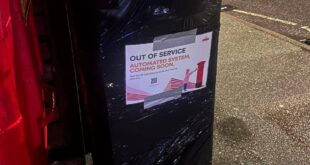By the end of yesterday’s second part, the long years of wrangling and international arbitration over repayment of that £300 million-plus debt (which has been sitting in a court account since 2001) had emerged as both the main reason for Zaghari-Ratcliffe’s arrest, and the single greatest obstacle to her release.
Thomas’s narrative conveyed a strong sense of the cold power and facelessness of the forces at work, the geo-political grinder in whose cogs Nazanin has become enmeshed. Yet he also kept it personal enough never to lose sight of the human being at the heart of his story – which continues until Friday.
On a lighter note, the most uplifting programme of the week was the joyful appearance of actress and dancer Leslie Caron on Desert Island Discs (Radio 4, Sunday). Caron has been on the show before, a mind-boggling 66 years ago, in 1956, when it was still presented by Roy Plomley.
Now a remarkably sprightly 90, she looked back over a life supremely well lived, telling tales of growing up in Nazi-occupied Paris, of Hollywood’s Golden Age, of dancing with Gene Kelly and Fred Astaire, and of not wanting the same things from life as her sometime lover Warren Beatty.
To say all this was magical is understatement; the music selections reeked of the smoky clubs of chansonniers Jacques Brel, Yves Montand and Edith Piaf, with some Maria Callas and Mozart thrown in. Host Lauren Laverne was, clearly, as enchanted by Caron as we listeners were. Especially by her choice of luxury item – a cutlass – an amusing volte-face on her previous choice of artists materials. A wonderful edition, aptly aired on World Radio Day.
Source link




It was World Radio Day on Sunday. Not that there was much fanfare. A fleeting mention on Broadcasting House and a documentary, about tiny community radio stations in far flung places, on the World Service. That was about it. This year’s theme was “Radio and Trust”, in recognition of a report last year that credited radio with being one of our most trusted news sources. It’s something most of us agree with, despite occasional grumbles.
Monday’s Today (Radio 4) was a reminder of the crucial role played by radio in exposing one of the worst miscarriages of justice in recent years. Just ahead of the public inquiry into the Post Office scandal that saw sub-postmasters wrongly convicted for fraud, Mishal Husain conducted a heartrending interview with Myra Philp, who outlined how her mother, who died in 2018, lost her home, business and well-being as a result of errors made by the Post Office’s flawed Horizon computer system. Those experiences were echoed in much of the evidence given during the inquiry’s opening two days.
Journalist Nick Wallis was also on hand to point out how much justice still remains to be done in this case. Wallis first reported on the story more than a decade ago and his superb Radio 4 series The Great Post Office Trial was pivotal in helping victims realise that they were not alone – as the Post Office kept telling them – and bringing the scandal to public attention. That investigation was radio journalism at its most vital, and the podcast version remains (on BBC Sounds) essential listening. Wallis’s outrage that no senior executive in the Post Office has yet been held to account for this heartless, seemingly systematic persecution of employees, was palpable.
The tumultuous last days of the Shah of Iran and the revolution that brought Ayatollah Khomeini to power in 1979 formed the vivid backdrop to Nazanin (Radio 4, Monday-Friday). We all know that Nazanin Zaghari-Ratcliffe was arrested in 2016 and has been, in effect, held hostage since by the Iranian government, thanks to a high-profile campaign to keep the case for her release high on the news agenda. In Nazanin, Ceri Thomas (a former Today and Panorama editor) set out to explore the decades-long backstory that saw decisions taken by British and Iranian governments, even before she was born, reach out and tear this woman’s life to pieces.
“It’s the story of a debt which the UK has owed to Iran since 1979,” said Thomas, before plunging into a murky tale of kickbacks, secretive arms deals, shadowy MI6 spies and unconscionable greed. The bribery-ridden purchase of 1,500 Chieftain tanks by the Shah shortly before his overthrow – an order vital for keeping Britain’s 1970s arms industry on its feet – was portrayed as the key factor. So was the new Iranian regime’s prompt cancellation of the order and demand for its money back.